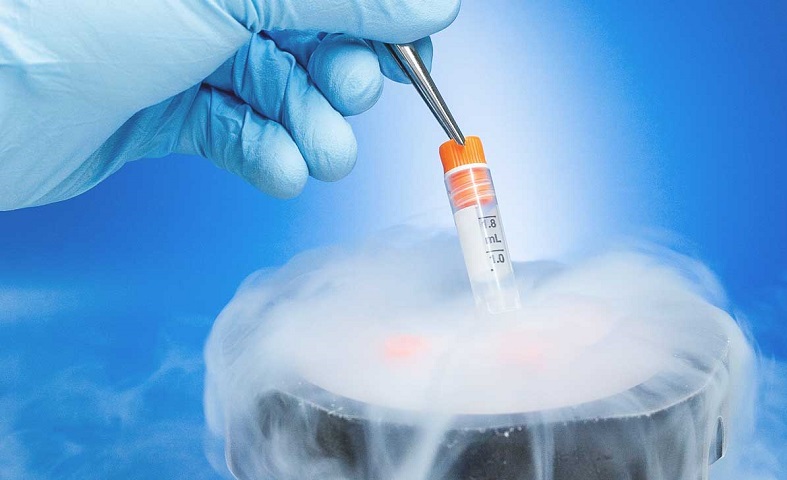
Women who are at risk of a reduction in ovarian reserves or ovarian failure can consider freezing unfertilised eggs. Frozen eggs can be used later when you are ready to start family. Egg freezing can also offer young women the reassurance of preserving their fertility, especially for those who are not yet ready to start family, and who wish to become biological parent in future.
Certain diseases or disorders require treatment that may affect fertility. For example, diseases such as cancer, genetic disorders, autoimmune diseases, can provoke infertility.
If you plan to have children, you have to know how a disease or its treatment may affect fertility. Before starting treatment for any illness, you have to get information about the consequences with regards to your fertility.
Before starting elective egg freezing, we will assess your egg health and advise on their suitability.
The process of egg freezing is similar to an IVF cycle. We’ll give you medications to stimulate your ovaries to produce multiple eggs. When we consider the eggs ready for retrieval, you’ll undergo an egg collection procedure under sedation (day surgical procedure).
Once we collect your eggs, we freeze them using a flash-freeze method ‘vitrification’. When you intend to use the frozen eggs, we thaw the eggs in a reverse process.
We then treat the eggs by using Intracytoplasmic Sperm Insemination (ICSI). This involves injecting one sperm into each viable egg. We will give you fertility medications to prepare your womb for the transfer of the embryos created using the thawed eggs. The remaining frozen eggs stay in storage.
Sdfertility.com ingilizce:
Egg Freezing/Fertility Preservation
Fertility Preservation
Oocyte cryopreservation, or egg freezing, is a relatively new procedure in the field of assisted reproductive technologies. Overall, this technology increases a woman’s potential to have children later in life. Since the first successful pregnancy using egg freezing was reported in 1986, hundreds of babies have been born. Currently, pregnancy rates are around 30 percent for single embryo transfer and increases with increased number of embryo transfers up to three embryos.
Egg Freezing
Egg freezing allows a woman to preserve her fertility until she is ready to start her family. This option is available to women who are diagnosed with cancer or other illness that may affect their fertility. It is also an option for healthy women who wish to delay attempting to achieve pregnancy until later, knowing that as we age our fertility function decreases. During an egg-freezing cycle, a patient will go through many of the same steps that are involved in a typical IVF cycle: ovulation stimulation, ultrasound monitoring, and egg retrieval. After egg retrieval, the eggs will be cultured for a few hours and then frozen the same day for future use.
Our team will help guide you through the process, and help you to evaluate if this is the right option for you. An outline of the process can help you see that it is a fairly easy process and can be coordinated with your schedule so that it does not impact your other obligations.
- Initial consultationwith our specialist doctor (real time /online)
- Preliminary fertility testing – hormone analysis, ultrasound, infectious disease testing.
- consultation and treatment coordination: the treatment timeline is jointly planned and all treatment details are explained.
- ultrasound and medication review
- Begin taking medications
- Treatment visits for ultrasound review and blood tests (usually 4-5 in total over a period of two weeks)
- Egg retrieval – outpatient procedure with anesthesia
- Egg Freezing
Embryo Freezing
An alternative option in fertility preservation is embryo freezing. Although egg freezing success rates are improving, we see higher success rates with embryo cryopreservation. Once the eggs are retrieved, the mature eggs are fertilized with either partner or donor sperm. These high quality embryos remain frozen until the patient is ready to use them. If patients have completed their families, they have the option to donate these frozen embryos to research or training; the embryos can also be discarded.
